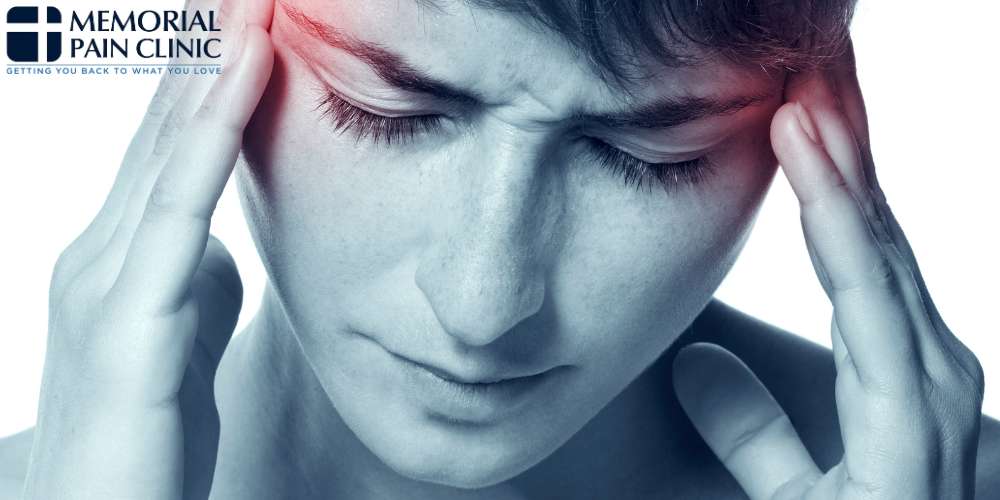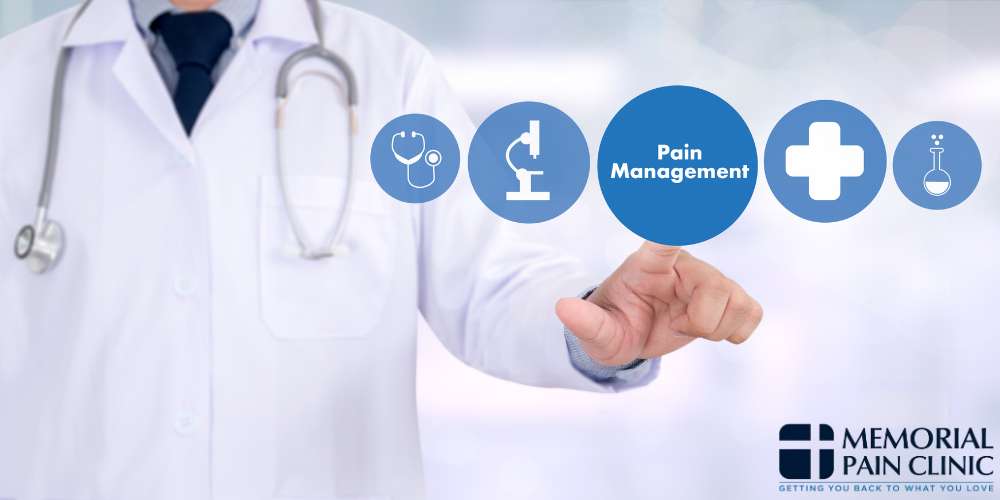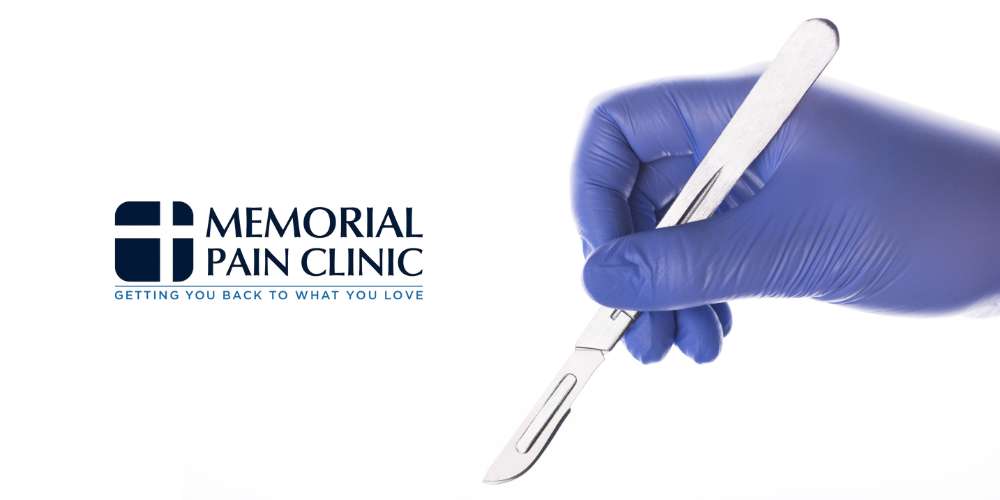Car Accident Injuries Treatment Tulsa, OK
Our Services
Table of Contents
Car Accident Doctor in Tulsa, OK

Experiencing a car accident can not only be traumatic but also leave you grappling with various injuries that impact your daily life. At Memorial Pain Clinic in Tulsa, OK, we specialize in providing comprehensive and compassionate care tailored to address the unique challenges faced by victims of car accident injuries.
Our team of experienced pain management professionals employs the latest techniques and treatments to help you manage your pain, heal effectively, and regain your quality of life. Whether you’re dealing with whiplash, back injuries, or more complex pain issues, we’re here to support you on your path to recovery.
To schedule an appointment with a skilled car accident doctor, please call our clinic at 918-200-9944 today.
Do You Have Pain After a Car Accident in Tulsa?
Are you struggling to find relief from pain following a car accident? At Memorial Pain Clinic in Tulsa, Oklahoma, we understand the challenges you may be facing after experiencing a traumatic car accident injury.
Our dedicated team specializes in providing compassionate and comprehensive care for car accident injuries, helping patients like you regain control of their lives and find lasting relief from pain. From whiplash and back injuries to chronic pain management, we offer personalized treatment plans tailored to your unique needs.
With our expertise in pain management techniques, medication management, and rehabilitative therapies, we are committed to guiding you on the path to recovery and restoring your quality of life.
What Should Car Accident Victims Do After a Crash?
Seeking medical treatment promptly after a car accident is vital, regardless of whether you feel immediate pain or not. Many common car accident injuries, like whiplash, may not show symptoms until hours or days after the event.
A healthcare professional can conduct a thorough examination and diagnose any injuries early, preventing them from becoming chronic issues. This step is crucial not only for your health but also for any insurance claims or legal action you may consider later.
Going to the emergency room may be a good decision immediately following a car accident, but this is often a short-term fix for long-term pain. Many car accident injuries require ongoing or specialized treatment, which is best left to pain management specialists.
Why Is It Important to See a Car Accident Doctor?
Seeing a doctor immediately after a car accident is critical for several compelling reasons. First and foremost, it ensures that any injuries, including those that might not yet be apparent, are identified and treated promptly.
Car accident injuries like whiplash, internal injuries, or concussions can have delayed symptoms, making them easy to overlook initially. Early diagnosis and treatment can significantly improve recovery outcomes and prevent long-term health issues.
Furthermore, medical documentation created when you visit a doctor plays a vital role in any insurance or legal processes that may follow. This documentation serves as an official record of your injuries and the treatment you receive, establishing a direct link to the accident.
Such records are essential for supporting claims for compensation, whether through insurance company claims or legal action, helping to ensure that you are not left financially burdened by medical expenses or lost wages due to the accident.
What Are Common Car Accident Injuries?

Common car accident injuries can vary widely depending on the severity and type of accident, as well as factors such as the speed of the vehicles involved and whether occupants were wearing seat belts. Some of the most common car accident injuries include:
- Whiplash
- Head injuries
- Broken bones
- Soft tissue injuries
- Chest injuries
- Back injuries
- Internal injuries
Neck Injuries
Injuries to the neck are some of the most common car crash injuries. Specific injuries to the neck during a car crash include cervical dislocation, neck strain, herniated discs, cervical spine fractures, and whiplash.
These injuries can result from the abrupt jolts typically experienced in collisions, leading to pain, stiffness, reduced range of motion, and, in severe cases, neurological symptoms like numbness or weakness in the arms.
Whiplash
Whiplash is a neck injury caused by the sudden jerking motion of the head backward and then forward, commonly occurring in rear-end collisions.
Head Injuries
Head injuries can range from mild concussions to traumatic brain injuries (TBIs). A traumatic brain injury can have long-term effects on cognitive function and overall health.
Broken Bones
Fractures are common in car accidents, especially in the arms, legs, ribs, and wrists, due to the impact of the collision or the force of airbags deploying.
Soft Tissue Injuries
These include injuries to muscles, ligaments, and tendons, such as sprains, strains, and contusions (bruises).
Chest Injuries
Chest injuries, such as bruising from seat belts (known as seat belt syndrome) or broken ribs from the impact, are common in car accidents.
Back Injuries
Car accidents can cause various back injuries, including herniated discs, spinal cord injuries, and strains.
Back Pain After Car Accident
Car collision victims often experience back pain due to the forceful impact and abrupt movements involved in collisions, which can strain, sprain, or tear the muscles and ligaments in the back. The impact can also lead to more severe conditions, such as herniated discs, spinal fractures, or injuries to the spinal cord itself.
These injuries can cause pain that ranges from mild and manageable to severe and debilitating, potentially leading to chronic back pain if not properly addressed. The complexity of the back and spine means that symptoms can sometimes appear well after the accident.
Internal Injuries
Internal injuries, such as organ damage or internal bleeding, may not be immediately apparent after an accident but can be serious and require immediate medical attention.
Car Accident Leg Injuries
Common arm and leg injuries from car accidents include fractures, dislocations, and soft tissue injuries such as sprains, strains, and contusions. The force of impact during a collision can cause occupants to strike parts of the vehicle’s interior or be thrown around inside the car, leading to these injuries.
Fractures in the arms and legs may range from simple breaks that require casting to more complex fractures needing surgical intervention. Soft tissue injuries, while often less severe, can still result in significant pain, swelling, and limited mobility, requiring proper medical evaluation and treatment to ensure full recovery.
Car Accident Face Injuries
Common facial injuries resulting from car accidents include facial fractures, lacerations, contusions, and soft tissue injuries. The impact of a collision can cause occupants to strike the steering wheel, dashboard, or airbags, leading to trauma to the face. Facial fractures may involve the nose, cheekbones, jaw, or eye sockets, requiring surgical intervention for repair.
Lacerations and contusions can result from broken glass, debris, or impact with hard surfaces, often necessitating stitches or other wound care treatments. Soft tissue injuries such as bruising and swelling are also common and may resolve with time and proper care.
How Long After a Car Accident Can Injuries Appear?

Injuries from a car accident can appear immediately after the collision, but some may take hours, days, or even weeks to manifest fully. For instance, whiplash, one of the most common car accident injuries, often develops hours or days after the incident due to the delayed onset of symptoms.
Similarly, internal injuries, such as organ damage or internal bleeding, may not present immediate symptoms but can become apparent as time passes. It’s crucial for individuals involved in car crashes to monitor their physical condition closely following the incident and seek medical attention promptly if they experience any symptoms, even if they seem minor at first.
Factors such as adrenaline, shock, and the body’s natural response to trauma can mask pain and symptoms initially, delaying the onset of injuries. Additionally, some injuries, particularly those affecting soft tissue or the musculoskeletal system, may worsen over time without proper treatment.
What Are Symptoms of Injury After Car Accidents?
Symptoms of injury after car accidents can vary depending on the type and severity of the injury. More serious injuries may have more apparent symptoms, but not always. The tendency of symptoms to take a while to show after an accident is what makes seeing a doctor so important. If you experience any of the following symptoms after your auto accident, seek medical attention immediately.
- Pain or tenderness in the neck, back, shoulders, or other parts of the body
- Stiffness or reduced range of motion in the neck or back
- Headaches or migraines
- Dizziness or vertigo
- Numbness or tingling in the extremities
- Difficulty concentrating or remembering
- Changes in mood or behavior, such as irritability or anxiety
- Fatigue or difficulty sleeping
- Visual disturbances or sensitivity to light
- Swelling, bruising, or deformity at the site of injury
What Are Common Treatments for Car Accident Injuries?

Treating car accident victims requires careful evaluation of their symptoms. The treatment for car accident injuries depends on the specific type and severity of the injury. However, common treatments for various car accident injuries include:
- Pain management
- Physical therapy
- Heat or ice therapy
- Surgery
- Immobilization
- Massage therapy
- Medications
- Injections
Physical and Occupational Therapy
Physical therapy plays a central role in rehabilitating musculoskeletal injuries, such as strains, sprains, and fractures. Physical therapists employ various techniques, including exercises, manual therapy, and modalities like heat or ice, to improve mobility, strength, and function.
Occupational therapy may also be recommended to help patients regain independence in daily activities, such as dressing, cooking, or driving, particularly if the injuries affect the upper extremities. This is helpful if certain injuries affect a victim’s ability to live their life or perform their jobs.
Medication Management
Medication management is another essential aspect of treating car accident injuries, particularly for managing pain and inflammation. Nonsteroidal anti-inflammatory drugs (NSAIDs), muscle relaxants, and analgesics may be prescribed to alleviate pain and promote comfort during recovery. These are useful for soft tissue injuries, sprains, strains, and other minor injuries.
In cases of severe or chronic pain, physicians may recommend more potent pain medications or interventions such as nerve blocks or corticosteroid injections to provide relief. It’s essential for patients to work closely with their healthcare providers to find the most effective medication regimen while minimizing the risk of side effects or dependency.
Surgery After a Car Accident

For more complex or severe injuries, surgery may be necessary to repair damaged tissues, restore function, or stabilize fractures. Orthopedic surgeons may perform procedures such as fracture reduction and fixation, spinal fusion, or joint replacement to address structural abnormalities or instability resulting from the accident. Surgical interventions are often followed by a comprehensive rehabilitation program to optimize recovery and regain function fully.
Contact Memorial Pain Clinic for Auto Accident Injury Treatment in Tulsa
At Memorial Pain Clinic in Tulsa, Oklahoma, our mission is to provide you with the comprehensive care and support you need to overcome the challenges of car accident injuries. We are dedicated to helping you regain your quality of life by addressing your pain and promoting healing through personalized treatment plans.
With our experienced team of pain management specialists, state-of-the-art facilities, and compassionate approach to care, you can trust us to guide you through every step of your recovery journey. Don’t let car accident injuries hold you back any longer. Take the next step towards a pain-free future by scheduling a consultation with Memorial Pain Clinic today. Your road to recovery starts here.
